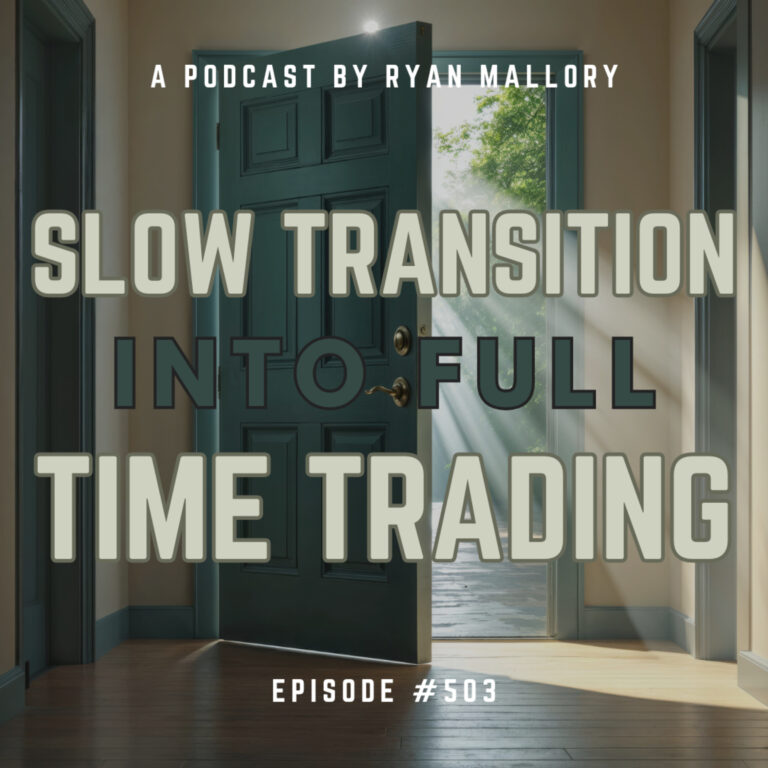Swing Trading and Earnings Season: How To Trade It
With the arrival of every earnings season, the stock market reverberates with a heightened sense of volatility. Swing traders, who thrive on short-term trends and pricing fluctuations, often find themselves navigating these choppy waters and how they should balance swing trading and earnings season. However, should you hold a swing trade through earnings season? Let’s explore five compelling reasons why it might not be a prudent strategy.
Avoid Unpredictable Volatility During Earnings Season
Earnings season can often feel like navigating a ship through a violent storm. The unpredictability of stock market volatility during these periods can spell disaster for your portfolio, especially if you’re swing trading. Despite potential short-term gains, the risk is disproportionately large. Maintaining a balanced portfolio requires risk management, so consider abstaining from holding swing trades through earnings season to protect your investments.
The Uncertainty of Stock Direction Post-Earnings
Predicting a stock’s performance post-earnings is akin to forecasting the weather without instruments – nearly impossible. Despite market analysis, comprehensive research, and historical trends, it remains unpredictable whether a stock will beat earnings and revenue expectations. Furthermore, the stock’s reaction to these numbers can often deviate from what you might expect. The inherent unpredictability of the stock market during earnings season can thus introduce a high-risk variable into your swing trading strategy.
Forward Guidance Can Sabotage Stock Reactions
Earnings reports aren’t just about numbers. They’re also about the future. Even if a stock outperforms on earnings and revenue, forward guidance – the company’s projection of future earnings – can affect its share price. For example, if a company beats earnings estimates but projects weaker future earnings, the stock price can take a hit. As a swing trader, these unexpected reactions can disrupt your strategy and potentially cause losses.
Extreme Negative Reactions Can Impact Your Portfolio Performance
The domino effect of an extreme negative reaction can be severe. If a stock takes a significant downturn contrary to your position, it could cause substantial damage to your portfolio. An unforeseen negative reaction can lead to rapid losses, especially for swing traders who typically hold positions for a short duration. Mitigating this risk requires a cautious approach, particularly during earnings season.
Swing Trading: More Than Just Earnings Reports
Remember, swing trading isn’t just about playing the earnings season. It’s about consistent profitability. Swing trading requires a holistic approach that minimizes the negative impact of losing trades and maximizes profitability over the long term. By consciously avoiding earnings reports, you can avoid significant drawdowns, reduce risk, and enhance the potential for steady, long-term gains.
Conclusion
Swing trading during earnings season is a high-stakes gamble, and the risks often outweigh the potential rewards. The unpredictability of stock market volatility, the uncertainty of stock performance post-earnings, the influence of forward guidance, and the possibility of extreme negative reactions can all pose substantial threats to your portfolio. Remember, swing trading isn’t about betting on earnings reports—it’s about maintaining consistent profitability. By avoiding earnings, you can reduce risk, protect your portfolio, and ultimately, enhance your swing trading success.
And be sure to check out the SharePlanner Trading Block where you can join my community of traders and see what I am swing trading each and every day.

Welcome to Swing Trading the Stock Market Podcast!
I want you to become a better trader, and you know what? You absolutely can!
Commit these three rules to memory and to your trading:
#1: Manage the RISK ALWAYS!
#2: Keep the Losses Small
#3: Do #1 & #2 and the profits will take care of themselves.
That’s right, successful swing-trading is about managing the risk, and with Swing Trading the Stock Market podcast, I encourage you to email me (ryan@shareplanner.com) your questions, and there’s a good chance I’ll make a future podcast out of your stock market related question.
How should one go from their regular 9-5 job into full-time trading? As a swing trader, we don't have to necessarily be full-time, and instead we can combine our trading into a lifestyle that allows us to maximize our time and earning ability.
Be sure to check out my Swing-Trading offering through SharePlanner that goes hand-in-hand with my podcast, offering all of the research, charts and technical analysis on the stock market and individual stocks, not to mention my personal watch-lists, reviews and regular updates on the most popular stocks, including the all-important big tech stocks. Check it out now at: https://www.shareplanner.com/premium-plans
📈 START SWING-TRADING WITH ME! 📈
Click here to subscribe: https://shareplanner.com/tradingblock
— — — — — — — — —
💻 STOCK MARKET TRAINING COURSES 💻
Click here for all of my training courses: https://www.shareplanner.com/trading-academy
– The A-Z of the Self-Made Trader –https://www.shareplanner.com/the-a-z-of-the-self-made-trader
– The Winning Watch-List — https://www.shareplanner.com/winning-watchlist
– Patterns to Profits — https://www.shareplanner.com/patterns-to-profits
– Get 1-on-1 Coaching — https://www.shareplanner.com/coaching
— — — — — — — — —
❤️ SUBSCRIBE TO MY YOUTUBE CHANNEL 📺
Click here to subscribe: https://www.youtube.com/shareplanner?sub_confirmation=1
🎧 LISTEN TO MY PODCAST 🎵
Click here to listen to my podcast: https://open.spotify.com/show/5Nn7MhTB9HJSyQ0C6bMKXI
— — — — — — — — —
💰 FREE RESOURCES 💰
— — — — — — — — —
🛠 TOOLS OF THE TRADE 🛠
Software I use (TC2000): https://bit.ly/2HBdnBm
— — — — — — — — —
📱 FOLLOW SHAREPLANNER ON SOCIAL MEDIA 📱
*Disclaimer: Ryan Mallory is not a financial adviser and this podcast is for entertainment purposes only. Consult your financial adviser before making any decisions.





